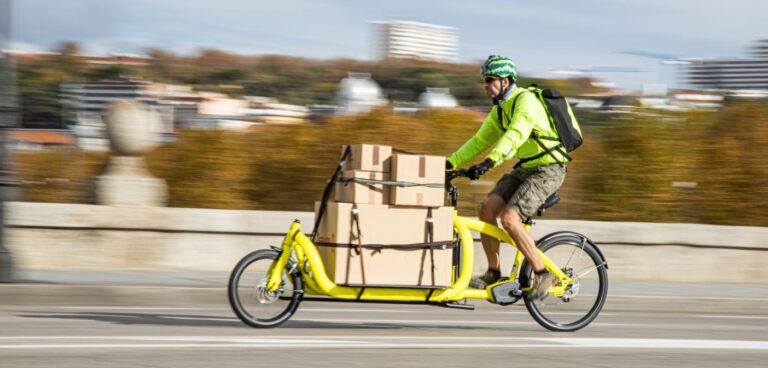A report by the University of Westminster has found that while the increased use of cargo bikes in last mile logistics has the potential to reduce greenhouse gas emissions, the cargo bike sector in its current state poses financial and health risks to many riders.
The university conducted interviews with riders and managers from 15 different cargo bike companies to investigate the newly popular form of logistics transport.
Dr Ersilia Verlinghieri, Senior Research Fellow at the University of Westminster and Lead Researcher on the project, said: “Cargo bikes can provide a reliable alternative to van deliveries, and they contribute to reducing greenhouse gas emissions, air pollution and improving public space. But this sector can truly thrive only if it centres its growth on prioritising the health and wellbeing of its workers, rather than allowing commercial considerations to be the primary driver of decisions.”
As part of the report, the researchers have called for policymakers and cargo bike companies to develop and implement an action plan to improve the sector in six key areas: ensuring fair employment, scaling up the sector, improving cycling infrastructure, improving health and safety, improving communication practises, and adopting a clear equity, diversity, and inclusion (EDI) strategy.
One of the most worrying revelations from the report is that ‘all of the female and non-binary couriers interviewed recounted experiences of physical or sexual harassment whilst out on the road’. In addition to the other recommendations to improve the sector, it is vital that cargo bike logistics companies do everything they can to ensure the safety and wellbeing of its female and non-binary riders, taking action and providing tools to protect them against such harassment. The sector can never be truly diverse and provide equal opportunities while certain groups have to face discrimination on the roads on a regular basis.
With cargo bikes resulting in much fewer greenhouse gas emissions than delivery vans, the switch to pedal-powered last mile deliveries is undoubtedly a positive not only for the environment, but for cutting congestion and improving air quality. However, if more deliveries are relying on riders of cargo bikes, it is important that these workers are being fairly employed and their safety is ensured while cycling around the UK’s streets.







